Last updated on April 15th, 2024
You know those pivotal moments when you explore a new place and a little voice inside you whispers “go down that alley” or “what is that – go find out”? or “you need to do this”? We don’t always listen to that voice. We don’t always trust our intuition. But when we learn to, when we flex that muscle – it almost always leads us to somewhere, something, or someone amazing.
As I make my way through five of our seven continents (so far), I’m learning to heed that inner voice when it speaks. One of the most life-altering times: Following my intuition down a long dirt road in heart of the Omo Valley on my second sojourn to Ethiopia in 2016.
We are stopped for a quick stay in Jinka – a market town nestled in the hills north of the Tama Plains in southern Ethiopia that is home to 16 indigenous ethnic groups. When our friend and guide Teddy Berhanu asks us to accompany him on an errand to Jinka’s prison, many in our group refuse. But that inner voice whispers to me, urging me to go.
I admit to feeling slightly apprehensive. Ethiopia fills your heart, but it also has the power to break it. Through the experience that follows, my eyes open to a need that I, for all of my worldly travels, had never considered.
In Ethiopia, when a parent goes to jail, there’s often no family to take in the children, so the children go too.
At the time of our visit, Jinka’s prison is home to 97 prisoners – 47 of them female convicts who share a 24-bed space with 27 children, many of whom were born there. As we discover, many of the women are incarcerated for murdering their abusive husbands, some of them pregnant at the time of their arrest.
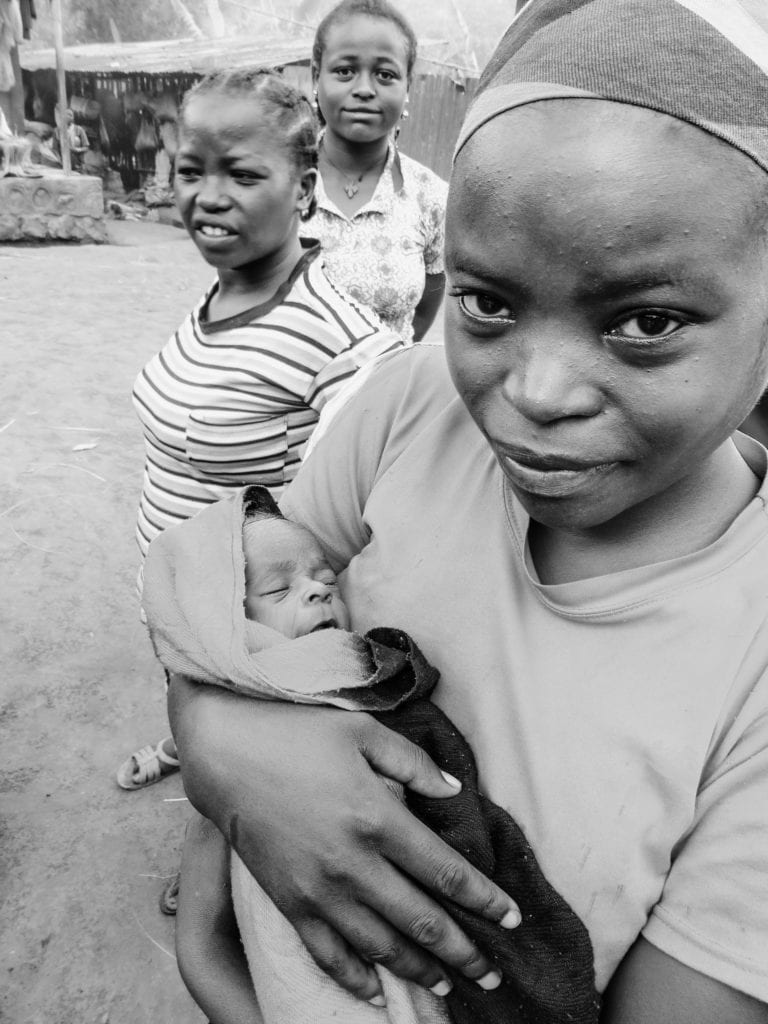
A 10-day-old baby born in Jinka’s prison
The government funds rations (meals of injera 3x daily – no fruits or vegetables) to feed the prisoners but does not provide extra to feed their children. The women must share their allotment – and their bed or floor space – with their children. There is no running water, and sanitary provisions are very poor. Nothing is provided for the children: no toys, education, medical care, beds, or clothes.
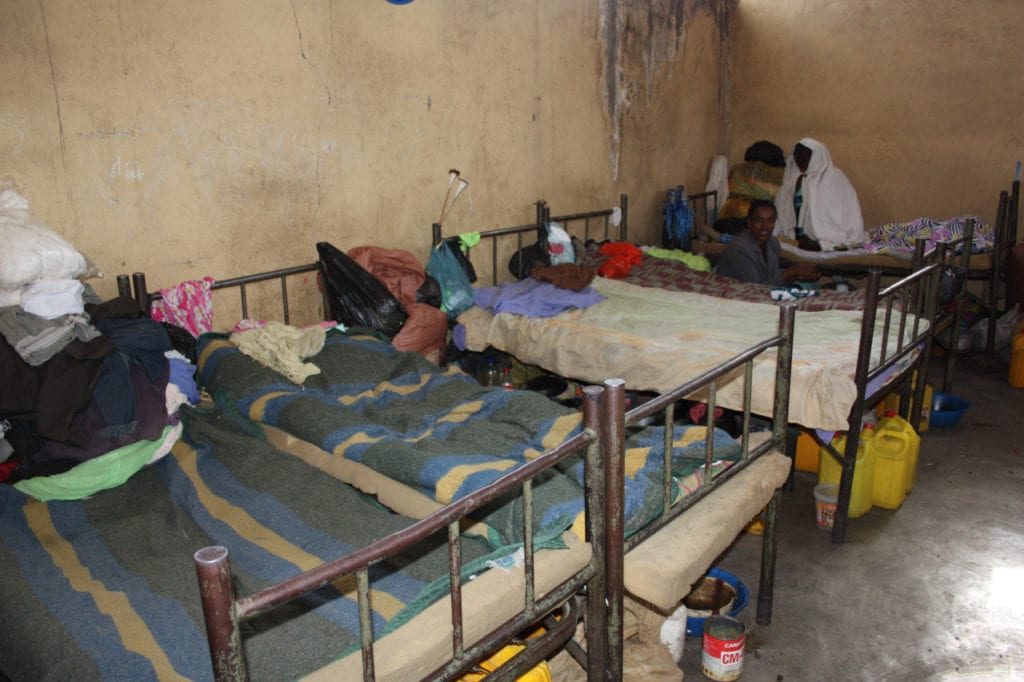
The women’s living quarters
Once they reach the age of 14, the children are free to leave. At 14, boys are no longer allowed to stay with their mothers on the women’s side of the prison. But what chances does a child of 14 have in the outside world – a world they’ve likely never known – with no family, no money, and no education? It’s unfathomable to a Westerner, but in Ethiopia, staying in prison is often a more palatable choice over freedom. For children who have committed no crime.
That is a crime – a crime against humanity. One NGO, Morning Tears, is working to raise awareness with the Ethiopian government of its responsibility to the children of prisoners, to provide them with basic rights, and a fighting chance at a life. The key? Education. Teddy works with NGOs all over Ethiopia, including Morning Tears, and imagine1day, the Canadian organization we built our school in Gobele with. Morning Tears had sent him on a mission to deliver school supplies for the children in Jinka’s prison, which the NGO has supplied with a teacher. Now, Morning Tears is looking to build a school well away from prison grounds so the children can experience walking to school, and get a taste of the outside world so they can be free for a portion of their day, and be equipped for a life of freedom past age 14.
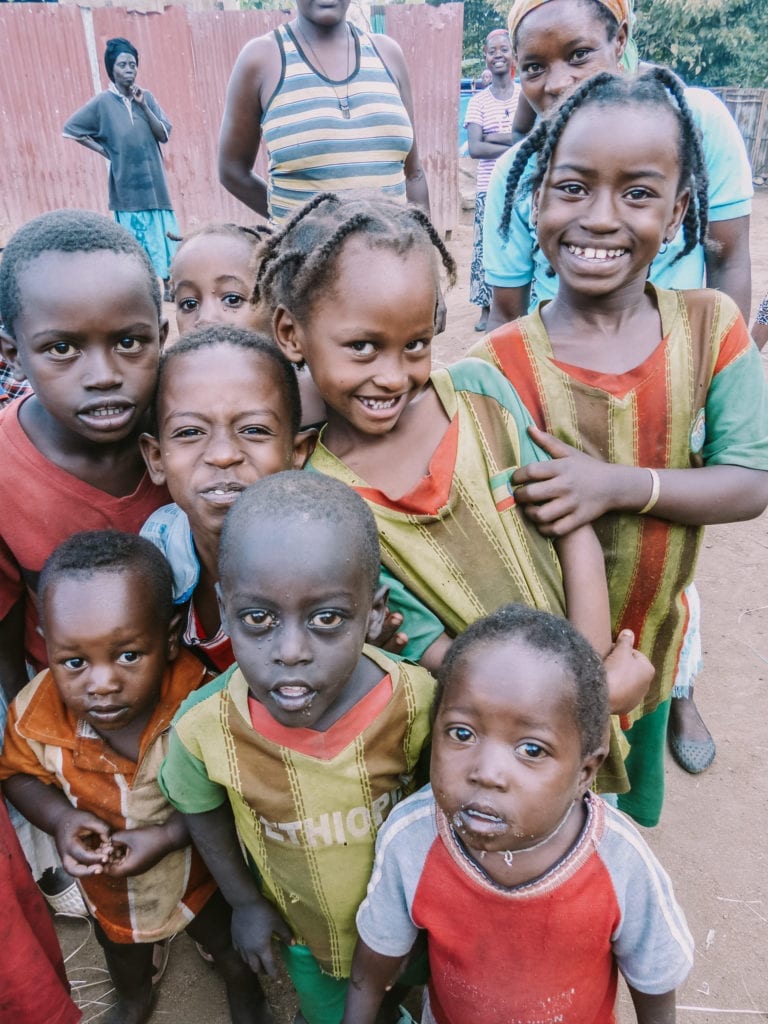
The children of Jinka’s prison
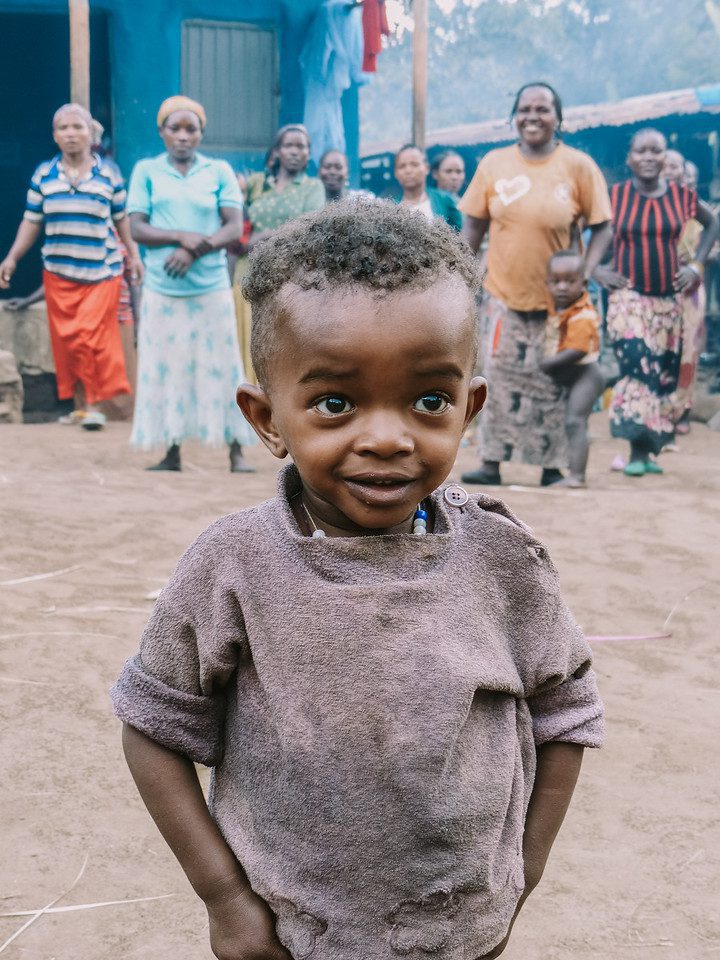
This little one stole my heart
Entering the prison yard on the women’s side, I expect to see guarded expressions or even open hostility on the faces of the female prisoners, and broken spirits in the children. Bracing myself for it, I fix an open and friendly expression on my face, willing it not to show the pity I am certain to feel.
That’s why the welcome we receive hits me hard, leaving me breathless and speechless. Women and children run from all over the yard, thrilled at the unexpected novelty of visitors – ferengi (foreigners) at that. One by one, they shake our hands, flash us wide grins full of friendship and mischief. We take their photos, and the simple delight they take in seeing their own faces – many for the first time – brings smiles to ours. These women and children may not know physical freedom, but this prison yard is full of free spirits. They – women and children with less than nothing by Western standards – inspire me.
On the drive back, I stare out from the window of our truck at some spectacular scenery passing by without really seeing it. My mind full of images from a life-altering experience in a dirt yard, scattered thoughts richochet through it like bullets: Images of resilience. Strength. A community of women looking out for one another, and for their children. Children who know no other life beyond prison, but are happy to be alive.
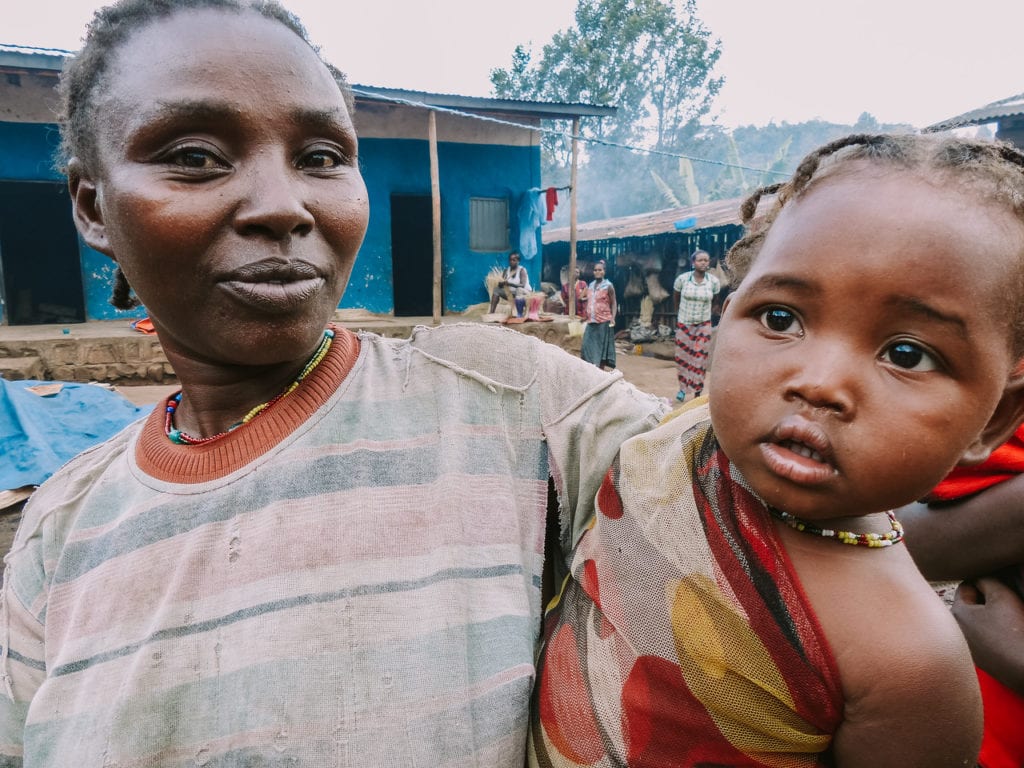
Resilience
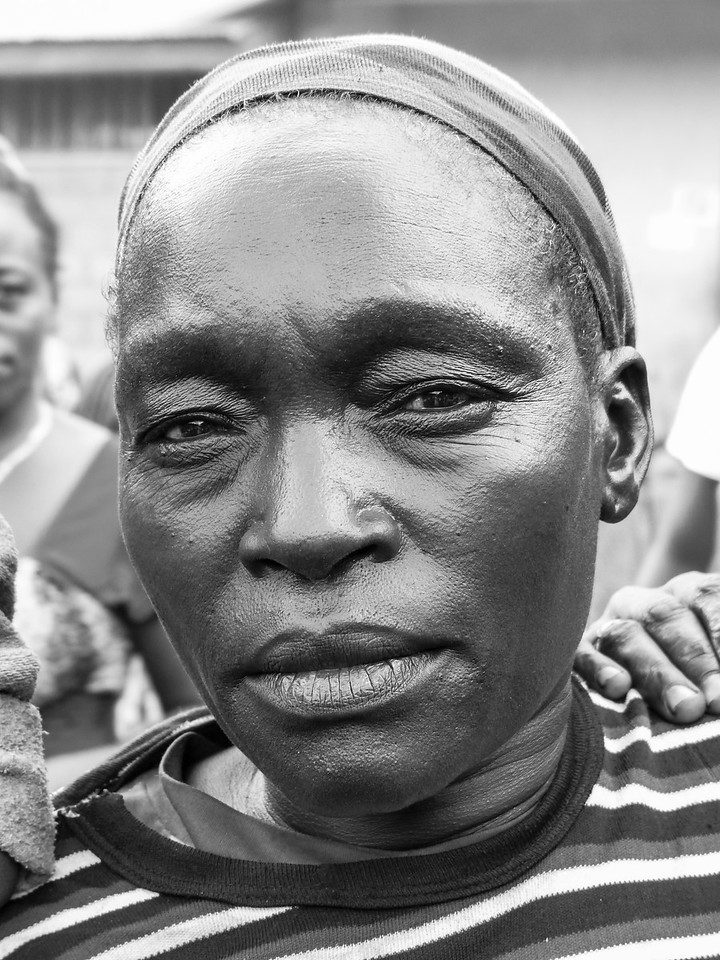
Strength

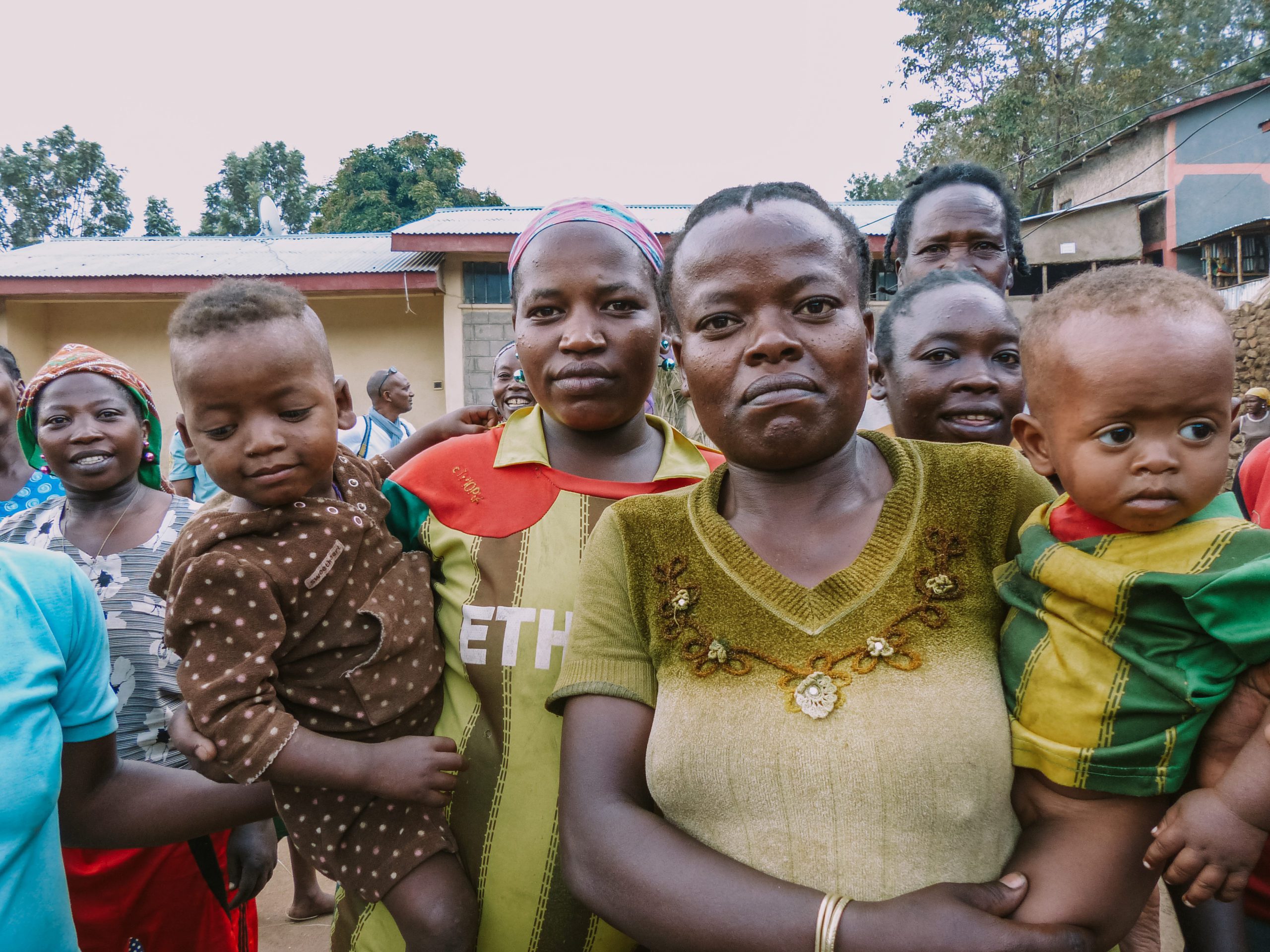

0 Comments
We always strive to use real photos from our own adventures, provided by the guest writer or from our personal travels. However, in some cases, due to photo quality, we must use stock photography. If you have any questions about the photography please let us know.
Disclaimer: We are so happy that you are checking out this page right now! We only recommend things that are suggested by our community, or through our own experience, that we believe will be helpful and practical for you. Some of our pages contain links, which means we’re part of an affiliate program for the product being mentioned. Should you decide to purchase a product using a link from on our site, JourneyWoman may earn a small commission from the retailer, which helps us maintain our beautiful website. JourneyWoman is an Amazon Associate and earns from qualifying purchases. Thank you!
We want to hear what you think about this article, and we welcome any updates or changes to improve it. You can comment below, or send an email to us at [email protected].